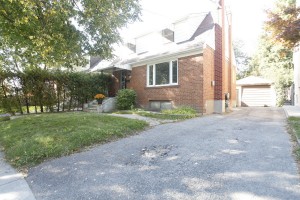In order to assist you with your home purchase I have prepared an in depth guide on the important steps to consider when you set out on your home buying journey. Perhaps you are a first time buyer; or maybe it’s been a long time since you bought a home and need a refresher on changes in the industry since you last bought. Whatever your situation is my guide is sure to ease the process from beginning to end. To receive you free guide just email me at [email protected] with your name address phone number and email or feel free to give me a call at 416-436-1086 and I will make arrangements to get your guide out to you immediately.
]]>Total TorontoMLS sales for May 2014 amounted to 11,079 – a new high for the month of May. This result was up by 11.4 per cent compared to 9,946 sales reported in May 2013. The average selling price for these sales was $585,204, representing an 8.3 per cent year-over-year increase compared to the average price of $540,544 in May 2013.
We are now at the peak of the spring market when we generally see the greatest number of sales and the highest average selling prices. Based on the May statistics, buyers have been more active this spring compared to last year. Despite strong price growth so far in 2014, many households remain comfortable with the monthly mortgage payments associated with the purchase of a home, as borrowing costs have remained at or near record lows over the past few months.
Average selling prices varied across the Greater Toronto Area, depending on geography and home type. A detached home in the City of Toronto sold, on average, for $943,055. In the surrounding GTA regions, the average detached price was $648,439. The average price for condominium apartments was $401,809 in the City of Toronto and $307,307 in the surrounding regions.
The listings situation in the GTA did not improve this past May. With listings down and sales up compared to last year, competition between buyers increased. The result was price growth wellabove the rate of inflation, especially for singles, semis and townhomes.
It is also important to point out that even though the condo apartment market segment remains comparatively well-supplied, as new project completions have generally led to an uptick in listings, we have seen enough buyer interest to prompt strong condo price growth as well.
]]>
Credit River in Port Credit (Mississauga, ON)
Mississauga is Canada’s 6th largest city with the population of over 713,000. This fabulous city covers a huge area, sits right next to Toronto and fronts 13km of shoreline on Lake Ontario. It’s simply a fun, vibrant place to live in, visit or play. If you’re thinking of relocating to Mississauga and need to find a reliable real estate agent to represent your best interests – get in touch with me today. Honesty, integrity and dedication are a few words that round out my approach.
Now, here is a brief list of fun places and things to do in Mississauga. You can never really be bored but in case you are, check out:
- Square One Shopping Centre – one of the largest shopping malls in Canada, with over 1.6 million square feet of retail space and more than 360 stores and services.
- Living Arts Centre – houses performance theaters an exhibition gallery, seven professional art studios and corporate meeting facilities.
- Port Credit – hiking on Lakeshore Road, window shopping, walking your dog, shopping at Farmers Market, dining in its restaurants, staying in Waterside Inn, sailing and visiting many of its festivals.
- Carassauga Festival – Every year we have a festival here where you can visit the different pavilions of different nations. Usually this takes place at the end of May.
- Purina National Dog Show during March Break – It is Canada’s most prestigious dog show, with top international judges on hand as hundreds of purebreds from around the world compete for their share of honour and prize money. It is perfect for dog enthusiasts and families looking for some March Break fun.
- Mississauga Waterfront Festival – Every year we have a great festival, with rides, music, and a lot of stuff for the kids to do! This usually runs the Canada day long weekend.
- CN Tower – it remains the tallest free-standing structure in the Western Hemisphere, a signature icon of Toronto’s skyline, and a symbol of Canada,attracting more than two million international visitors annually.
- Hershey Centre – multi-purpose sports and entertainment complex located in Mississauga, Ontario, across the street from Iceland Mississauga.
- Playdium – the main building is 40,000 square feet featuring more than 200 of the most popular games, amusement rides, and simulators.
- Credit River – home to a wide range of wildlife. Walk along the river or travel by canoe or kayak.
- Adamson Estate – a public park on the Waterfront Trail and a Canadian historic place.
Did I miss something? Do you have your favourite place to visit or a fun activity to do in Mississauga? Share your comments.
]]>- Print the Buying a Home – Essential Considerations checklist and put it on a clipboard.
- Mark the features you see and note their general condition on this list, when you find a home that really interests you.
- Fill out in the space and check the box of the one that best describes each home, where I’ve provided choices.
If you don’t know the answers to any question, then make sure to ask your Real Estate Sales Representative. Some technical issues should be established by a home inspector.
]]>
Small actions can go a long way in help you manage energy use!
Winter is pretty much here and with it are the cold temperatures and high energy bills. With the following winter energy saving tips, you can help manage and reduce your electricity and natural gas use. “Small actions can go a long way in helping Ontario families manage electricity use and cut energy costs. It’s important to remember that the least expensive type of energy is the energy we don’t use. Conservation is an important part of the government’s plan to lower greenhouse gas emissions and transition to a clean, reliable modern electricity system.” says Chris Bentley, Minister of Energy.
- Install a programmable thermostat, so you can lower your heat when sleeping or when not home
- Eliminate drafts around doors, windows with weatherstrips
- Have your furnace filter changed monthly and inspected each season
- Run your dishwasher, washer and dryer in the early morning, evening or weekends
- Unplug any electronic device not used, or turn off the power bar
- Keep the closet and crawlspace doors closed to keep the heat in
- Use energy efficient light bulbs (CFLs, LEDs)
- During the day, let the sun shine in and warm up the space
- Clean the dust off your fridge coils in the back
- Repair any leaky faucets
During the week (Monday to Friday) energy prices peak twice: in the early morning and in the evening mainly due to space heating, plus increased lighting and appliance use. During the weekends and holidays the demand is lower. Here are the current rates per kilowatt hour (since May 1, 2012):
Off-peak (7 pm – 7 am) 6.3 cents
Mid-peak (11 am – 5 pm) 9.9 cents
On-peak (7 am – 11 am, 5 pm – 7 pm) 11.8 cents
Following these energy conservations tips will not only benefits your bottom line, but also helps build a cleaner energy system in Ontario and reduces environmental impact by lowering emissions of greenhouse gases. For more information or to learn more about energy conservations, visit saveONenergy.ca.
]]>
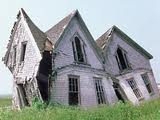
A minor problem now can become a major, and expensive, problem down the road.
Although home sellers may not always disclose the whole truth about the condition of their home, you most likely aren’t interested in paying for a professional inspection at every house you tour. There are several key areas that every buyer should pay close attention to when viewing prospective homes. Taking extra time to investigate these areas before you sign on the dotted line may help to waste time on a home that needs too much work or worse having to spend thousands of unwanted dollars after the purchase of your new home. Here is a list of some things to look out for:
Foundation Cracks. Examine the foundation from the outside and inside, too, if accessible. Look for horizontal cracks or any cracks bigger than one-third of an inch, which could mean serious structural problems. If the yard slopes toward the house, look for signs of water damage in the basement.
Bad or Strange Odors. Pay attention to smells in each room of the house, and even on the outside of the house. Cigarette smoke and pet odors can be difficult to hide. If a home smells heavily of cleaning products (especially bleach) or deodorizers, the seller may be trying to cover up a stinky situation.
Mildew and Mold. Check for signs of mold on basement walls and in laundry rooms. White or green colonies of mold can also indicate excessive water in the crawl space or basement. This can mean that soil needs to be brought in around the foundation to keep the water sloping away from the house.
Roof. Look for defective roofing and/or flashings, missing or falling shingles, curling shingles, flat spots in the roof that trap water, and low slope roofs that have shingles.
Weak Water Pressure / Old Plumbing. Check the water pressure by running the bathroom sink and flushing the toilet at the same time. Low water flow may indicate plumbing problems, such as corroded pipes that need to be replaced. New pipes can run as high as $15,000 in a typical 1,500-square-foot home.
Ceiling and Wall Stains. Water stains in a bathroom may indicate the shower or sink is leaking and needs to be re-caulked. It could also require ripping out tile and replacing the shower pan, which costs around $1,500 or having a plumber come in to repair the sink. Most roof leaks that come from the ceiling could be a result of neglected flashings that seals “valleys” in the roof or around a chimney or vents, which may cost up to $500. But roof leaks may also mean it is time to replace shingles, which could cost in the thousands of dollars. You may also want to take a look in the attic for broken trusses that could be causing leaks.
Doors That Don’t Close. If more than one door won’t close or swings open by itself, it may indicate a structural issue, such as a foundation that has settled or framing that is deteriorating.
Locked Doors. Inquire about any doors that are locked or marked “off limits” during your home tour. The homeowners may be trying to hide something.
Old or Faulty Wiring. Ensure all the switches and outlets in the house function properly. Flickering lights, circuits that don’t work and hot outlets or faceplates are all symptoms of wiring problems. Electrical needs for today’s appliances and electronics may exceed the capacity of homes built as little as 10 years ago. You may end up spending $2,500 or more to have an electrician update the electrical system.
Non-functioning Windows. Open and close all windows. Feel for irregular or large pockets of air drafts. Check for cracks and water in between double-paned windows.
If you enter negotiations to buy a house in Mississauga area, it is wise to always put in a condition on having a professional inspect the home for minor and major problems. Even brand new houses can have problems that the builder has overlooked. A minor problem now can become a major, and expensive, problem down the road. Most of these problems can be repaired, but depending on the specific problem; the cost can be substantial, which makes it the deciding factor in whether you ultimately buy the house.
]]>Today’s featured home is a fabulous, investment opportunity in Willowdale. This charming 1.5 storey home is one of the lowest priced detached homes in the area. The perfect property for investment or live in and enjoy! The floor plan features great sized principal rooms, hardwood floors thru out, modern updated kitchen, updated baths and most windows and a high dry finished basement with large above grade windows and separate entrance. Great income potential! The grand finale is the huge private yard with large deck off the kitchen and the superb location just 1/2 block in from Yonge Street and just minutes to transit/subway.
Although there has been some reports in the media that real estate sales are slowing the very desirable areas such as Willowdale have continued to be quite active. Good homes with good locations continue to sell within 2-3 weeks on average.
]]>If you are looking for a home in Toronto and are tired of having to bid against other buyers to purchase the home of your dreams I have fabulous home in
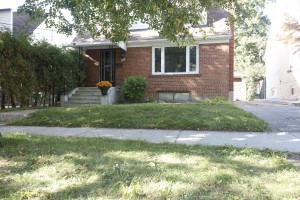
- Hot New Exlcusive Listing
Willowdale for sale which I am marketing exclusively. That means its not going on MLS and buyers can only view it by contacting me directly making the chances of having to live thru another bidding war less likely. The property is located at 28 Newton Drive just 1/2 block east of Yonge Street just North of Finch Ave. The home is a quaint 1950′s home with hardwood floors and the kitchen, bathrooms and most windows have been updated. The basement is fully finished with second bath and large bright recreation room with wood stove and large above grade windows. The separate entrance to the basement provides additional opportunities for rental income. The lot is fabulous; large and private. The perfect family retreat with the added bonus of a large deck off the kitchen for enjoying bar-b-ques and entertaining in the summer. The location of course is the grand finale just steps to Yonge Street and the subway line. The possibilities are endless! If you are looking for a great investment or just a happy family home call me for your private viewing of 28 Newton. You’ll be glad you did!
CLICK HERE FOR FURTHER INFORMATION ON THIS PROPERTY
]]>
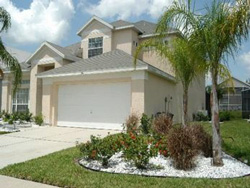
Florida Home
After such a fabulous Summer it is hard to imagine it is almost over and Fall is fast approaching.
If you are like me those few months of heat and sunshine certainly helps to make our long Canadian winters bearable. Unfortunately our summers are quite short and many Canadians head down south over the winter to Florida or other warm destinations to escape the snow and the cold. It is for this reason a colleague and myself have decided to offer a FREE FLORIDA BUYER SEMINAR designed to educate those interested in purchasing in Florida (or anywhere else in the U.S.) on the tax and estate issues that have a major impact on Canadian buyers.
Many junk emails we all receive keep telling us of the deals and steals in Florida and it is true! What these junk emails don’t tell you about are the pitfalls we can run into working with local American Realtors who lack the knowledge and experience of tax and estate issues for Canadian investors.
It’s no secret that the U.S. Real Estate Market has experienced one of the worst melt downs in history. Some prices have dropped up to 70 percent off their peak. It is also no secret that Canadians have become one of the largest international investors in the popular Sunshine States. 95% of Canadians are placing secured lines of credit on their homes to take advantage of the great deals. Cash buyers make Canadians an attractive investor. Having personally purchased property in the USA, I have experienced the trials and tribulations first hand of becoming a U.S. property homeowner. Although the process of purchasing in the U.S. seems in many aspects similar to the system here in Canada there are differences in the process (especially when considering foreclosures and short sales) and there are major tax and estate issues that must be considered before any transaction is finalized. Ignoring these issues may be very very costly and complicated to correct.
This Florida Buyer Seminar will address most of the Legal and Tax Considerations that we as Canadians are confronted with when purchasing in Florida and the rest of the U.S. The details of this Seminar and Registration for Attendance can be found at www.myfloridasun.ca.
Speakers will include one of the Top Canadian Cross Border Lawyers in Canada on Estate and Tax Issues in the U.S. Also hear from a U.S/Canadian Tax Accountant and 4 Florida Realtors from the Gulf Coast, Miami/Fort Lauderdale and Orlando Areas who have flown in especially for this event. Learn how you can exchange funds at a much more desireable rate than the banks are charging their clients.
Please join us for this FREE Seminar and bring a friend. ALL ARE WELCOME – but please do Register early as SEATING WILL BE LIMITED! You can register On Line at www.MYFloridaSun.ca to reserve your seat.
The time has never been better to invest – Look forward to seeing you!
]]>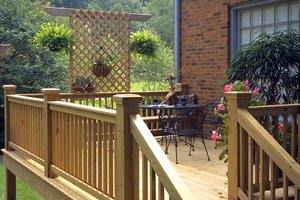
If you're handy, building a deck yourself cuts way down on costs, ensuring you'll get an even bigger return. Image: Universal Forest Products
House deck allows us to comfortably spend time outside, BBQ, relax, hang out with friends.. plus it’s definitely an asset when selling your home. Who doesn’t love a nice looking deck, especially if you have a rockin’ backyard to go wit it! You wanna get the most of it.
Building a deck is a project and like any other you wanna try to do it on budget, on time and within the scope. Here are some things to think about before embarking on the home deck building project.
1. Decide where you gonna build the deck and how big will it be. You wanna have it easily accessible from inside the house, and not be in way of the kitchen or create constant traffic in and out. Figure out how the sun will shine on your deck, will you have privacy from your neighbours, will it be easy to get on the deck, and will it be easy to access the rest of the backyard.
2. Decided on your budget and stick to that. Find out all the prices and try to select the best material for the money, keeping in mind durability and the ease of maintenance. Also think about who’s building the deck. You? or hiring someone? That can mean more or less money/time spent. Both have pros and cons. Of course, if you’re a skilled carpenter you might want to do it yourself.
3. Check out other decks in your neighbourhood and make sure that what you have in mind is not too far away from that. You don’t want to build something that sticks like a sore thumb.
4. Make sure you understand the local building code so your deck passes safety and the home inspection.
5. Lastly, you wanna think about how the deck is going to look compared to the rest of your house and how it fits in with your backyard.
Read more: http://www.houselogic.com/home-advice/decks/evaluate-your-house-deck/
]]>